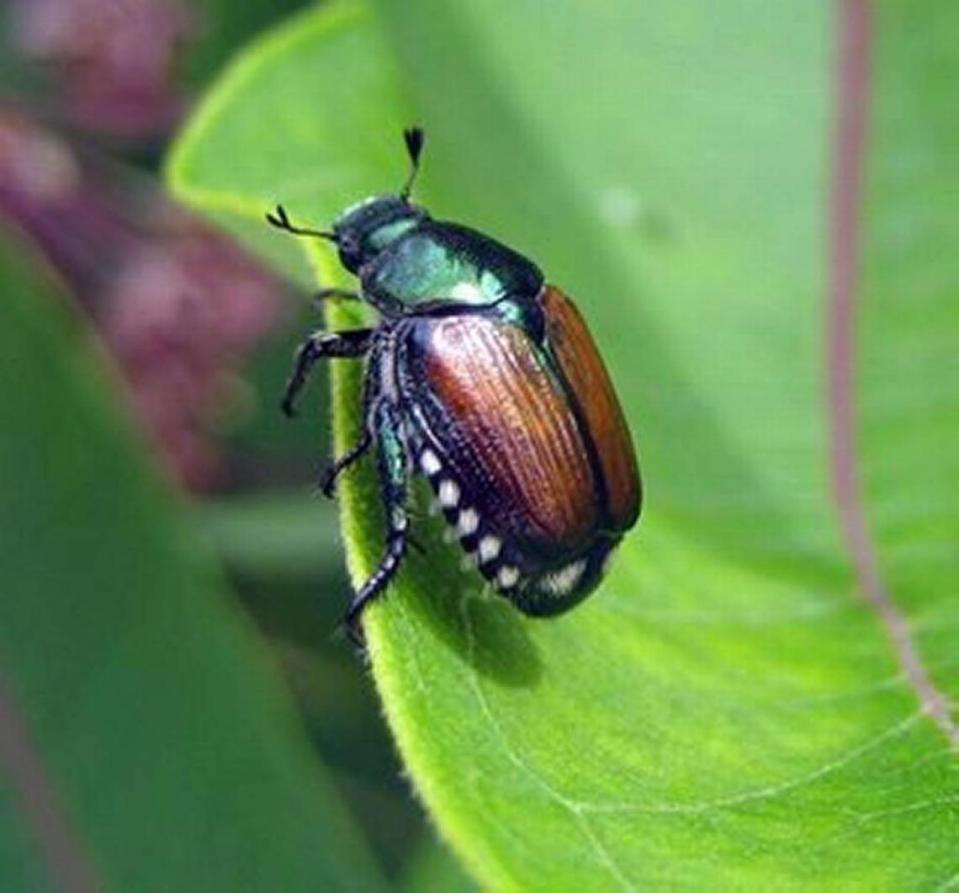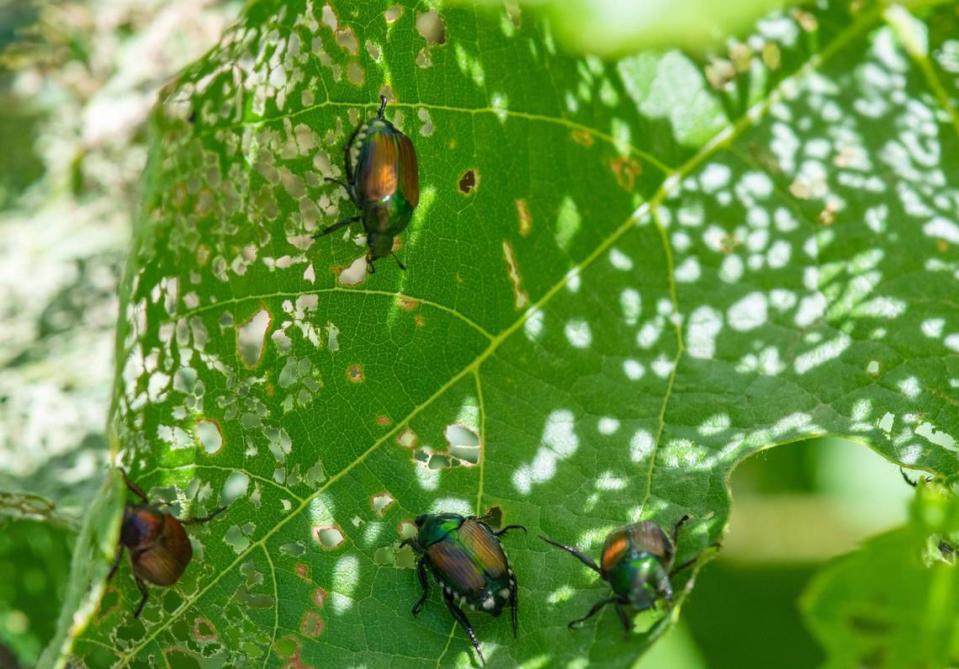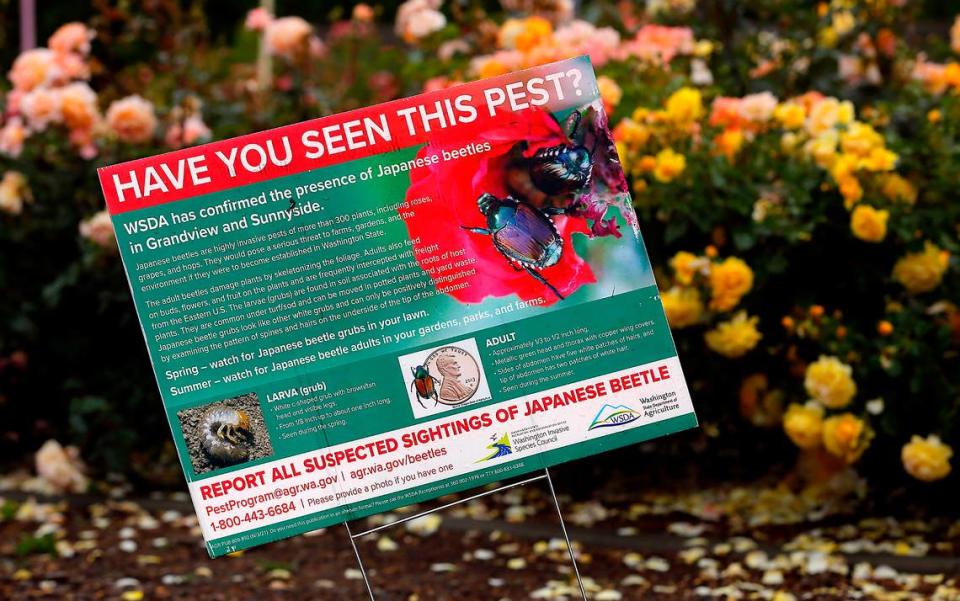Highly destructive Japanese beetle found in Tri-Cities. They can destroy crops and lawns
A beetle that’s highly destructive to crops and vegetable and flower gardens have been found for the first time in Pasco, says the Washington state Department of Agriculture.
A trapper for the Franklin County Horticultural Pest found a single Japanese beetle and the find was confirmed by the state on July 12.
“A single beetle is less cause for concern because one beetle can’t reproduce,” said Camilo Acosta, Japanese beetle eradication project coordinator for the Department of Agriculture. “But we need to be sure there are not more.”
Last year, a single Japanese beetle was found in Richland, but extensive trapping in the area did not detect additional beetles.
The state is asking for residents of Yakima, Benton and Franklin counties to look for them, take a photo of any they find and report it to the state.
Adults are metallic green and brown and have little tufts of white hair on their sides.

They overwinter in lawns or other soil and then emerge in June in the Mid-Columbia to feed on more than 300 ornamental and agriculture plants, turning the plants into skeletons as they consume the foliage, flowers or fruit.
Among the plants they feed on are roses, grapes and hops.
During their grub stage they also can attack grass roots, damaging lawns, golf courses and pastures, according to the U.S. Department of Agriculture.
“If Japanese beetles were to become established in Washington, it would pose a serious threat to gardens, parks and farms by destroying vegetation,” according to the state Department of Agriculture.
Farmers could be prohibited from sending agricultural products out of the area.
The state of Oregon has estimated that if Japanese beetles were to become established there, the economic impact to its crops, commodities and other related businesses could be approximately $45.5 million.

The Washington Department of Agriculture became concerned within it found two Japanese beetles in the area of Grandview and one in Sunnyside in 2020. They have mostly been found so far in Yakima County but they have been found along about 65 miles of the Interstate 82 corridor.
The largest concentration is in the area of Grandview, extending into western Benton County.
Washington has set up a quarantine area that extends within a couple miles of Prosser, with the movement of plants, soil and plant waste out of the quarantine area prohibited.
The Department of Agriculture is setting up additional traps in Franklin County and is checking with nearby nurseries for additional detections.
The Japanese beetle found last year in Richland was on Truman Avenue near Target. A nursery is nearby and that may be how the beetle was brought into the area.
The Department of Agriculture trapped more than 24,000 of the beetles in 2021 and slightly fewer last year. So far this year about 6,600 of the beetles have been trapped in Washington.
Help eradicate Japanese beetles
A find of Japanese beetles can be reported at bit.ly/ReportBeetlesWA or by email to PestProgram@agr.wa.gov with contact information, the location, date, photographs of the beetles and the number seen.
Or residents can call 800-443-6684.

After taking a photo, make sure the beetles are dead before discarding them.
Residents also can help by purchasing traps sold at home and garden stores and using then on their property from spring through fall, according to the state.
The traps allow any beetles caught to be killed and help the state track the infestation.
Adult beetles can hitchhike on vehicles and on items stored outdoors.
When adult beetles are flying from late spring through October, those who live in or visit the quarantine area should take a second to ensure they are not giving a free ride to beetles when they leave the area.
This can be as simple as checking the back of your pickup truck, according to the Department of Agriculture.

